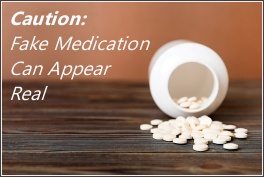 Many clients in methadone programs have co-occurring disorders like depression, anxiety, or adult attention deficit disorder (ADD). Historically, clinics have attempted to treat psychiatric symptoms with established, FDA-approved psychotropic medications which have proven useful across many settings in managing symptoms.
Many clients in methadone programs have co-occurring disorders like depression, anxiety, or adult attention deficit disorder (ADD). Historically, clinics have attempted to treat psychiatric symptoms with established, FDA-approved psychotropic medications which have proven useful across many settings in managing symptoms.
In the past decade, it became very apparent that benzodiazepines (commonly prescribed to treat anxiety) had become a popular alternative drug of abuse for individuals with an opioid addiction. “Benzos” are a particularly dangerous medication when used in conjunction with methadone, and the combination of these two contributed to a number of overdose deaths in recent years.
For this reason, many safety-oriented, reputable methadone clinics (and independent physicians) either discontinued or noticeably restricted their use of benzodiazepine medications with patients on methadone. Common benzodiazepines include prescription meds like klonopin, valium, xanax, and ativan. As an alternative to these high risk medications, non-addictive options like Buspar are utilized to help clients better manage their anxiety symptoms as well as cognitive therapies for teaching stress reduction and anxiety management skills.
Stimulant therapy is the use of stimulant-based medications to aid adults struggling with attention deficit disorder. Popular medications in this class include adderall, ritalin, and concerta. Unfortunately, these medicines are also widely abused and often illegally sold by patients thus forcing treatment providers to reconsider the use of these medications in their programs.
Positively, there are several medications which can help ADD and which have a low abuse potential. Some psychotropic medications can also be used off label to help reduce attention deficit problems. Off label means the drug was not designed specifically to treat a symptom, but has been found to have a beneficial effect on reducing that symptom.
In the end, methadone programs must employ the safest protocols to insure that clients receive treatment that genuinely helps them and will not place them at risk. There are instances in which benzodiazepines and stimulant therapies are appropriate and in the best interest of the client. However, medical and clinical staff must utilize a careful sense of discretion and evaluate the merits of a particular high risk medication against its potential for harm.
Clients can help this process by being open, honest, and direct with their treatment staff. Clients should report to management any person who is known to sell prescription medications to other clients. While this type of behavior typically occurs among a minority, it can have an extremely negative impact on other clients and the clinic itself.
 Minnesota officers recently seized a large quantity of fentanyl in the Midwest based on extensive investigation and “very, very good police work”.
Minnesota officers recently seized a large quantity of fentanyl in the Midwest based on extensive investigation and “very, very good police work”. 
 Follow
Follow

 Methadone is FDA-approved for pain management and the treatment of opioid addiction. Methadone is a relatively safe and highly effective medication when used exactly as prescribed. It is currently in use in the United States and around the world following years of conclusive research on methadone’s efficacy and safety.
Methadone is FDA-approved for pain management and the treatment of opioid addiction. Methadone is a relatively safe and highly effective medication when used exactly as prescribed. It is currently in use in the United States and around the world following years of conclusive research on methadone’s efficacy and safety. Benzodiazepines are a classification of drugs primarily prescribed to treat anxiety and panic attacks. They have been in use for over thirty years and are typically utilized for short term periods from several days to three months maximum.
Benzodiazepines are a classification of drugs primarily prescribed to treat anxiety and panic attacks. They have been in use for over thirty years and are typically utilized for short term periods from several days to three months maximum. Many clients in methadone programs have co-occurring disorders like depression, anxiety, or adult attention deficit disorder (ADD). Historically, clinics have attempted to treat psychiatric symptoms with established, FDA-approved psychotropic medications which have proven useful across many settings in managing symptoms.
Many clients in methadone programs have co-occurring disorders like depression, anxiety, or adult attention deficit disorder (ADD). Historically, clinics have attempted to treat psychiatric symptoms with established, FDA-approved psychotropic medications which have proven useful across many settings in managing symptoms. Dr. Jana Burson, in her opioid treatment blog, has written two important and interesting entries on the value of prescription monitoring programs (
Dr. Jana Burson, in her opioid treatment blog, has written two important and interesting entries on the value of prescription monitoring programs (


